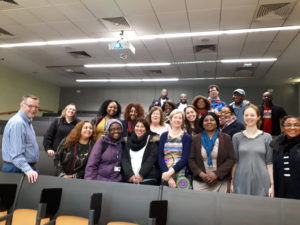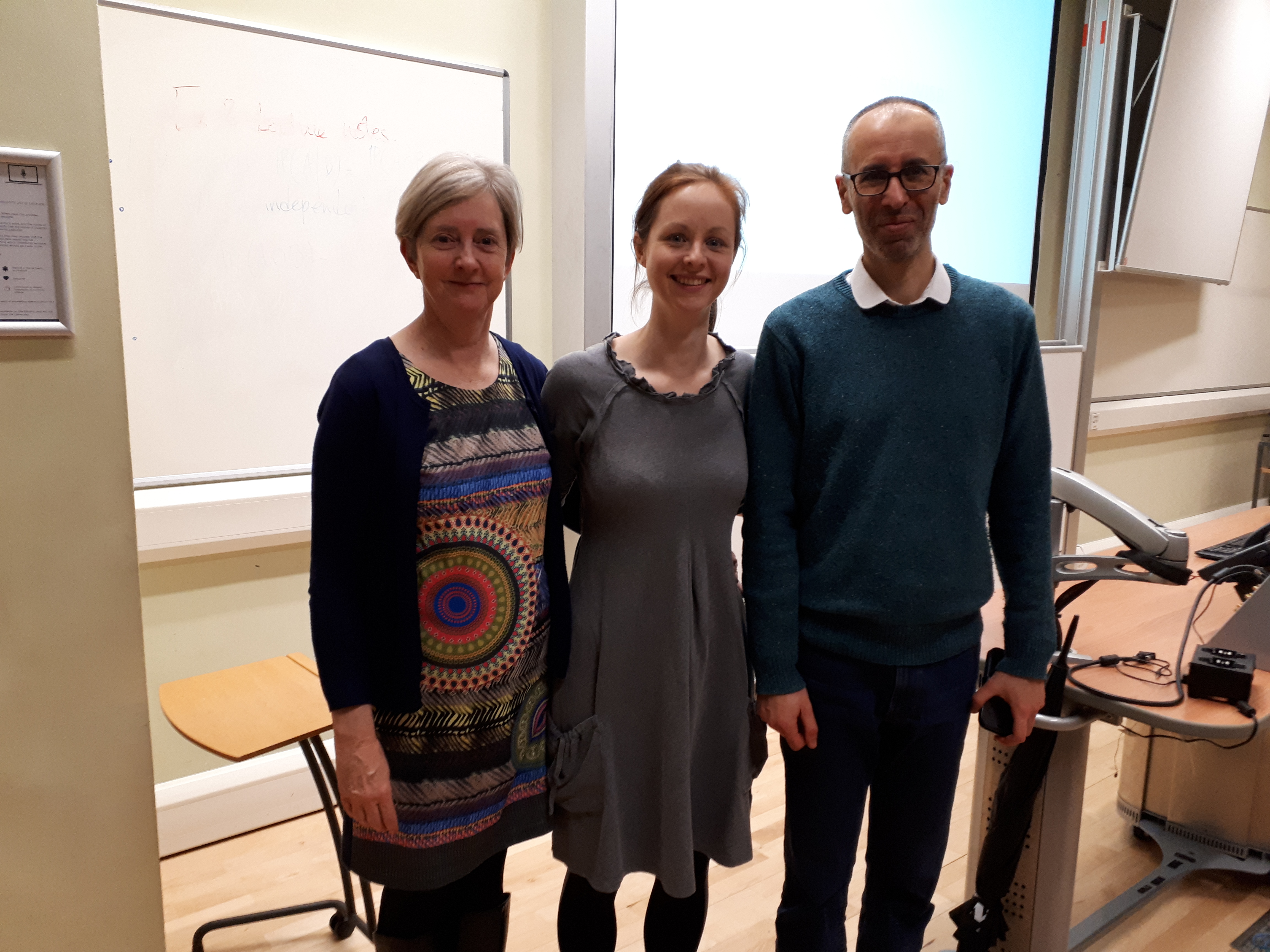Over the past 6 months the WiSP team have been invited to give seminars and workshops with social work practitioners on professional writing, drawing on WiSP findings. Here’s a snapshot of two of these events.

Image: Student-practitioners from the Masters programme at Brunel University
June 2019 Lucy Rai was invited to run two workshops for social work practice educators, convened by a group of North Central London Boroughs and voluntary agencies. Lucy’s work has focused on the relevance of identity, educational history and emotion as important influences on social work student writers. In this session she provided a space to consider how to best support students to transfer their learning from academic to practice writing, drawing also on WiSP findings. A key focus was encouraging educators and practitioners to look beyond the learning of surface features of writing, such as grammar, punctuation and ‘non standard’ English, to explore the value for students and practice educators of considering the context, audience and purpose of a specific text in order to produce writing which is not only good enough but effective practice. The workshops highlighted the concern that practice educators have about how to best support students on placement and the lack of a consistent or clear approach to teaching professional witting either at University or in practice.
In December 2018 Theresa Lillis (PI WiSP) and Lisa Lewis (local authority team manager in adoption and a member of the WiSP advisory panel) were invited to give a seminar at Brunel University as part of their Social Work Seminar Series aimed at postgraduate students in social work https://www.brunel.ac.uk/study/postgraduate/Social-Work-MA. The session was chaired by Yohai Hakak and focused on key findings from WiSP and the potential relevance to practice. A lively discussion took place about both the importance of writing and the need to find ways to manage the amount of writing.
Top image: Theresa, Lisa and Yohai

Comments
No comment